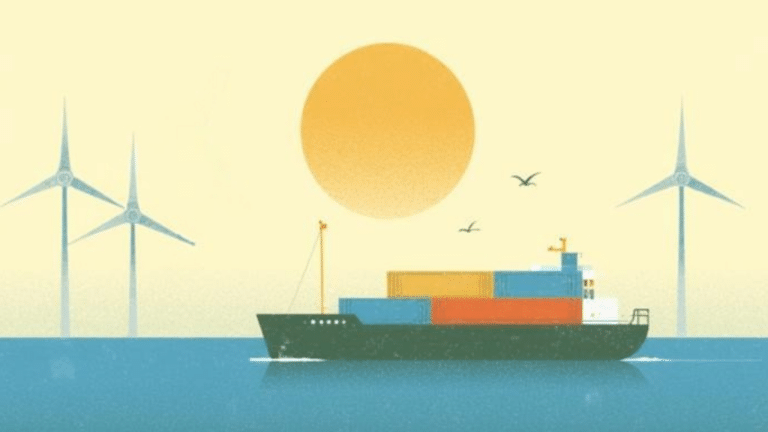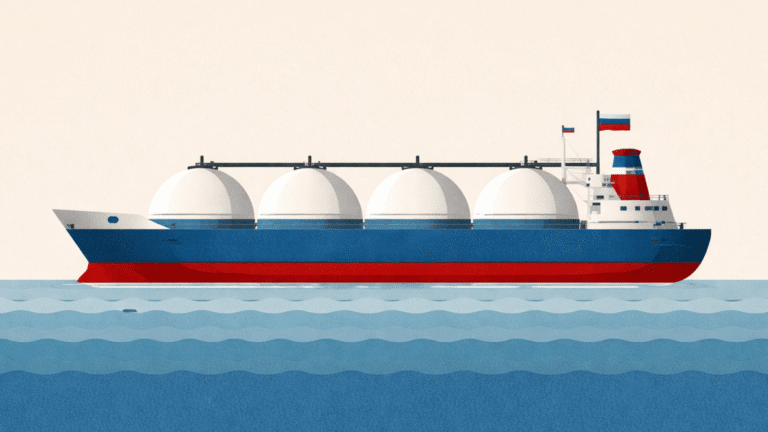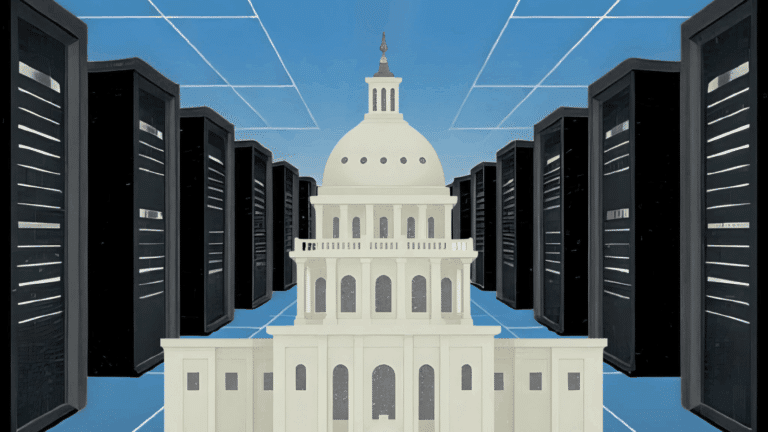Could a strategic lithium reserve kickstart US supply chain development?
NEW YORK -- A strategic lithium reserve is being mooted as a solution to stabilize volatile prices that have hindered American mining projects, allowi
Current Access Level “I” – ID Only: CUID holders, alumni, and approved guests only
Q&A by Harry Verhoeven • September 14, 2021
Africa historically has contributed less than any other continent to human-induced climatic changes. It has been responsible for about 3 percent of global cumulative emissions of carbon dioxide since the start of the Industrial Revolution, and half of the African total can be attributed to one country: South Africa. Even today, despite being the continent with the fastest pace of population growth and a considerable economic expansion since 2000, Africa still only accounts for roughly 4 percent of global emissions. Its marginal role in global warming notwithstanding, Africa is already suffering some of its most devastating consequences. These hardships include 2021’s locust plague in the Horn of Africa and years of missed harvests in Madagascar, which is now facing a famine. Despite their devastating impacts, these crises do not receive the same coverage as the melting of polar icesheets, the fires ravaging the Amazon, or the drought in the American West. Yet they are no less severe, as the Sixth Assessment Report of the United Nations Intergovernmental Panel on Climate Change (IPCC), released in August, makes clear. Assessing the full scope of this report, including consequences for Africa, will be key to making effective plans for adapting to and combating further climatic changes at the 26th UN Climate Change Conference (COP26) in Glasgow this fall.
Q. What does the IPCC report say about Africa?
A. The IPCC assessment of August 9, 2021, highlights the intensity of the challenges. First, the report emphasizes that sea level rises around Africa have been considerably more pronounced in the last three decades compared to the global mean. African island states such as Comoros, Madagascar, and Mauritius are already experiencing sea level increases of close to 5 millimeters per year. This rise accelerates the erosion of shorelines. Over the last decade, fishermen, farmers, and inhabitants have observed the rapid crumbling of thousands of miles of West African coast from Mauritania to Cameroon, with financial damage for economic powerhouses such as Côte d’Ivoire totaling approximately 5 percent of gross domestic product.
Second, temperature increases in much of the continent will exceed global rates of warming, including on the African littoral of the Mediterranean Sea and in Southern Africa, where such hikes will dangerously complicate the production of maize, sorghum, and millet—crops essential to rural incomes and urban food security. Even if global warming can be limited to the Paris Agreement goal of 1.5–2°C, both regions are likely to experience temperature increases twice that level or more, making it nearly impossible to live or engage in agricultural production in certain provinces.
Third, the frequency and intensity of high precipitation events that trigger flash floods and the swelling of river basins to dramatic proportions, will soar all around the continent. As the IPCC assessment was released, its warning was illustrated by Nile floods that have caused death and displacement in two-thirds of Sudan’s regional states. It is little consolation to the Sudanese population that this summer’s flooding is marginally less catastrophic than last year’s deluge, which raised the level of the Blue Nile to levels not seen for a century, affecting more than three million people. The IPCC is unequivocal that even with 2°C global warming, regions such as the Sahel will experience considerably more heavy precipitation and pluvial flooding.
Q. How have different African voices reacted to the Sixth Assessment?
A. Changing weather patterns obviously do not affect all of Africa in the same way; different populations are exposed to climatological vagaries and various policy responses to them in different ways. Nonetheless, most African reactions to the IPCC report contain similar messaging. African scientists underline the importance of the renewed acknowledgement that Africa is particularly vulnerable because of the sheer magnitude of expected temperature increases and sea level rise. That climatic changes are unmistakably human-induced and not a future prospect but a reality well under way on the African continent is critical. From the standpoint of African countries, it follows that the focus cannot just rest on mitigating climatic turbulence. The world must now concentrate on adapting to what is already happening.
Since the 1990s, African states have been deeply skeptical about whether wealthy countries would keep their promises to dramatically reduce their greenhouse gas emissions. African negotiators have long believed that industrialized countries would be unwilling to reverse their dependence on carbon-intensive economic growth and that putting all of the United Nations Framework Convention on Climate Change’s eggs in the mitigation basket is a costly mistake. As mosquito-borne diseases like malaria spread to areas not historically penetrated—Djibouti or the highlands of Ethiopia, Kenya, and Tanzania—and Africa’s Great Lakes become stormier and less conducive to fishing and trade, the necessity of adaptation is an acute reality for hundreds of millions of people. The long-standing, one-sided focus on mitigation has come, African states believe, at the expense of helping those who require it most.
It is evident in the IPCC’s work and the broader scientific apparatus studying global warming that African expertise is underrepresented and evidentiary material from Africa is often scant. As the Sixth Assessment recognizes, the international community does not collect enough data on the continent to draw sufficiently fine-grained conclusions and formulate highly detailed predictions, especially in comparison with Europe and North America. Such data inequality between different parts of the world is a considerable statistical problem for some of the IPCC’s models. It also hugely impacts the ability of already overburdened African societies to ready themselves for the tempests ahead; for instance, anticipating new disease vectors, adjusting how hydroelectric dams are operated, or tailoring agricultural extension to rapidly altering circumstances.
The hope of many African governments is that the new IPCC report will draw attention to the immediate needs of low-productivity agricultural regions, Africa’s growing cities, and overburdened infrastructure and health care systems. Their fear is that the Global North will continue exceeding its carbon budget and fail to agree to an international compact that politically, legally, and financially recognizes the fact that Africa’s shoulders are carrying the heaviest climate burden.
Q. How will the IPCC findings affect the negotiating position of African states at the UN Climate Change Conference in Glasgow this November?
A. Adaptation will, unsurprisingly, be front and center of Africa’s expectations of the upcoming COP26 meeting. This is encapsulated in the rallying cry of “solidarity, fairness, and prosperity for all.” African states are adamant that extant commitments toward mitigation and transparency are fully met, historical and contemporary losses and damages incurred by African ecosystems and societies are formally acknowledged, and at least half of all climate finance is redirected toward adaptation in the poorest countries.
At the 2009 Copenhagen summit, wealthy states promised to raise $100 billion per year in public and private finance by 2020 to help reduce emissions in developing countries as they pursue sustainable growth. At Copenhagen and in the 2015 Paris Agreement, billions of dollars in “new, additional, and predictable” funding for adaptation were also pledged. Yet none of these promises was kept. The new Green Climate Fund has not come close to raising funding that might curb the worst effects of climatological upheaval in Africa let alone kickstart the broader developmental transformation required. Its portfolio stands at roughly $33 billion; by comparison, the IMF estimates that just to respond adequately to the Covid-19 pandemic, Africa needs $285 billion. In an effort to shame powerful states into action, more and more developing countries—despite possessing the lowest carbon footprints on earth—are putting forth their own plans to reach net-zero by 2050, including Bhutan, Suriname, and African states such as the Gambia and South Africa.
Embedding adaptation in legally binding international documents and giving it due place in COP meetings has been an arduous struggle in the last two decades for African states, and is sometimes caricatured as yet another request for money. While resources are vitally important for adaptation, Africa’s position in conversations about global action on climate change should not be simplified as only insisting on adequate funding. The African Union has long highlighted the need to make much more meaningful progress on technology transfer, on pro-poor regulations around intellectual property, and on reform of existing institutions of global governance. The conviction that international organizations continue to underrepresent African interests underpins the broader African indignation about the slow pace with which the adaptation agenda has been acknowledged. Ultimately, for many African civil society activists, the many crises catalyzed by climatic changes are ultimately about power. The Glasgow conference can help by finally making progress on solidarity, fairness, and prosperity for all. But addressing the broader climate question will, from an African vantage point, require an overhaul of the international rules and organizations that produced the existential challenge in the first place.
This Energy Explained post represents the research and views of the author(s). It does not necessarily represent the views of the Center on Global Energy Policy. The piece...

Geopolitical uncertainty associated with Russian gas exports could swing the range of those exports by an estimated 150 bcm per year.

From the east to west and north to south, in red states and blue states, attention to data centers is skyrocketing in state capitals across the United States.

Full report
Q&A by Harry Verhoeven • September 14, 2021